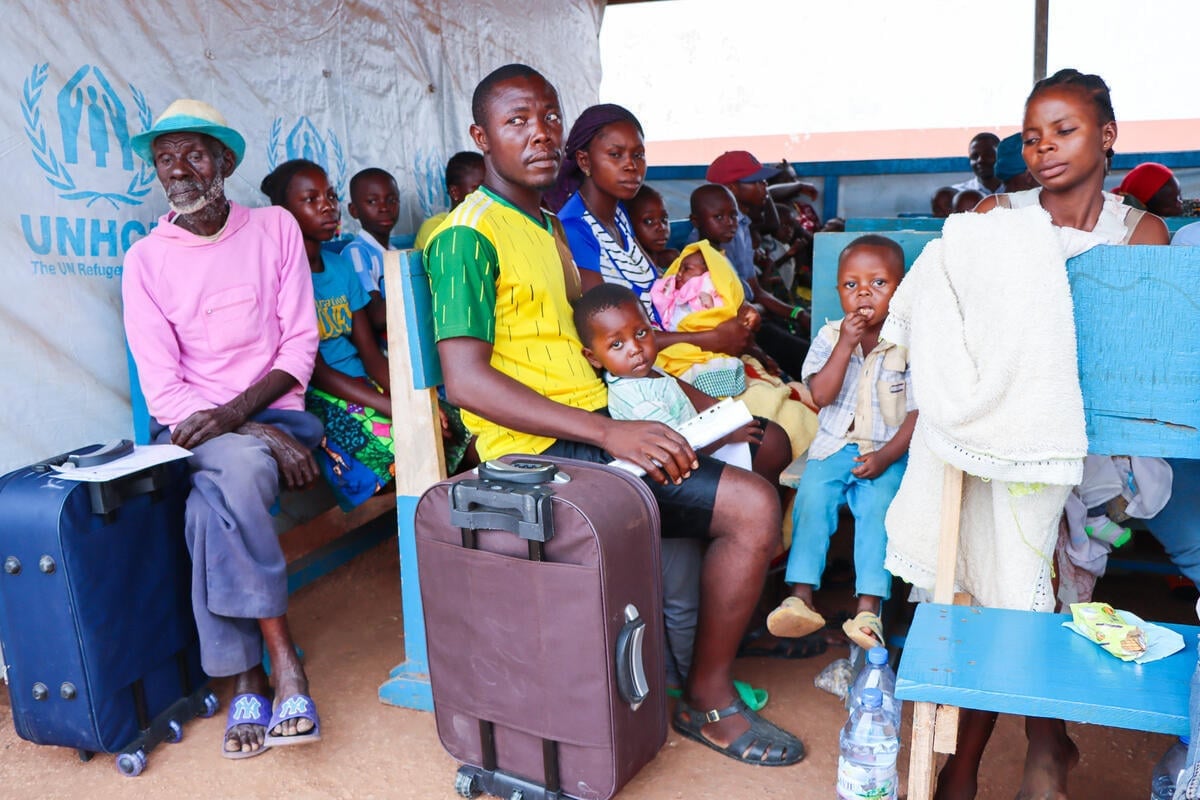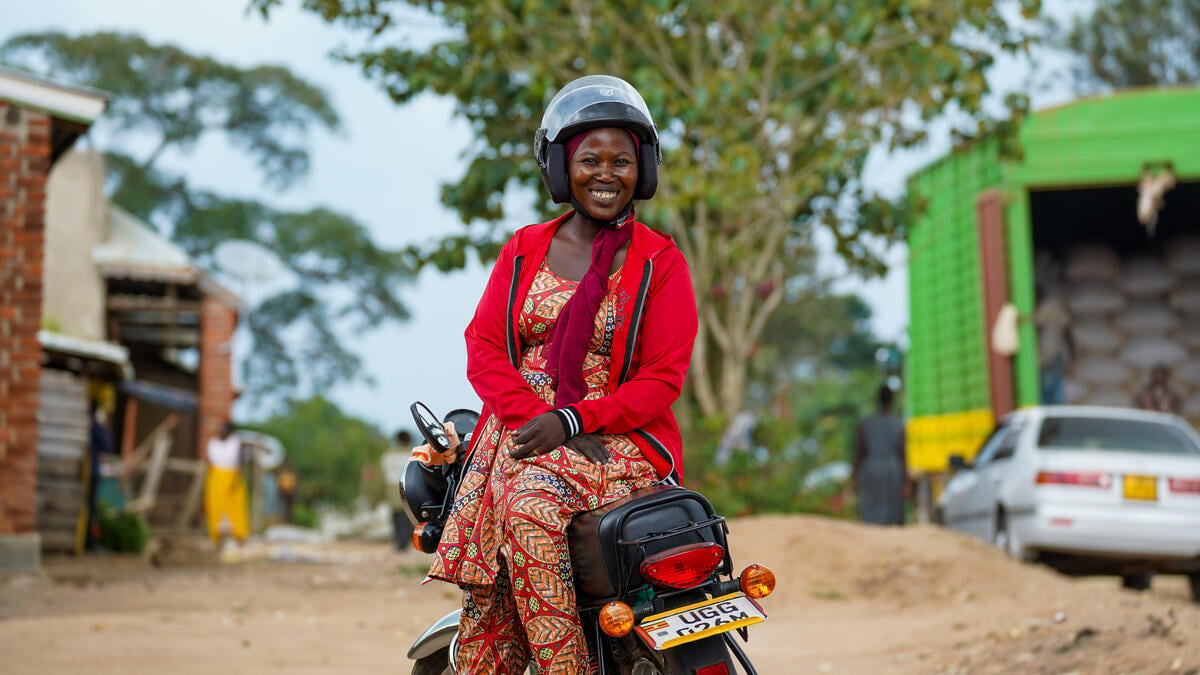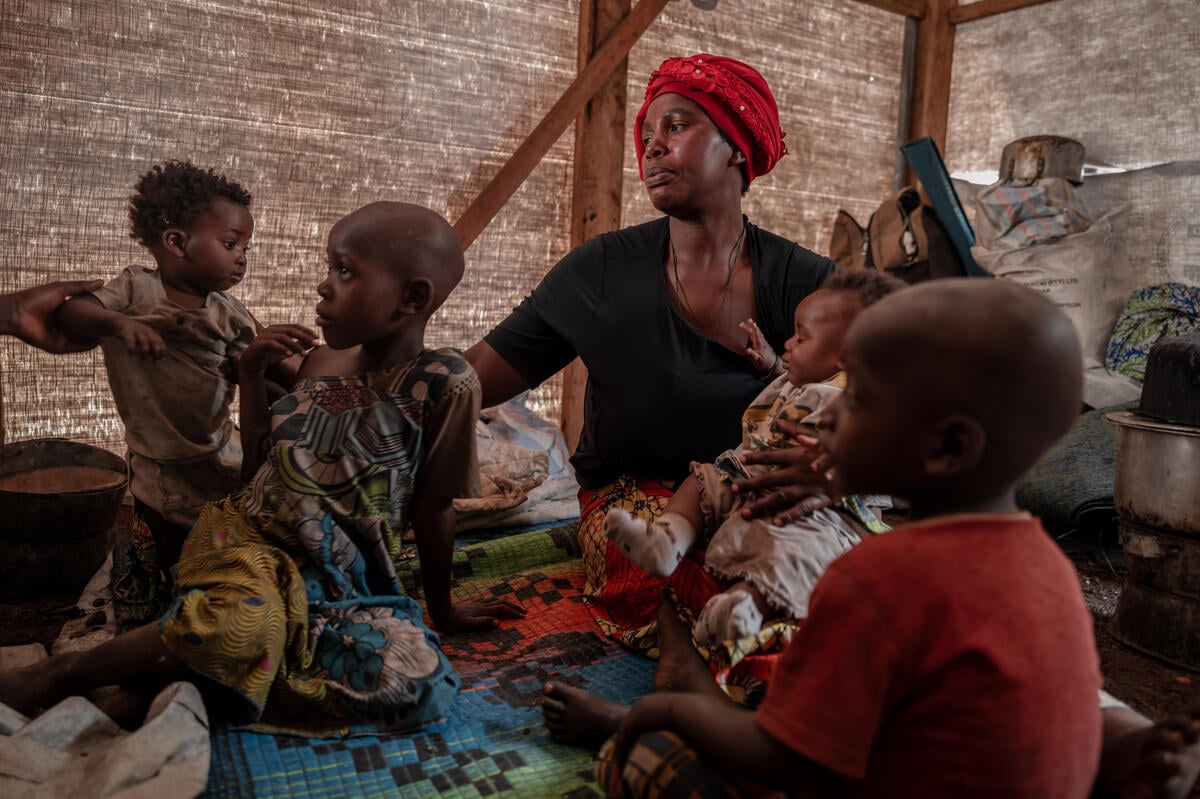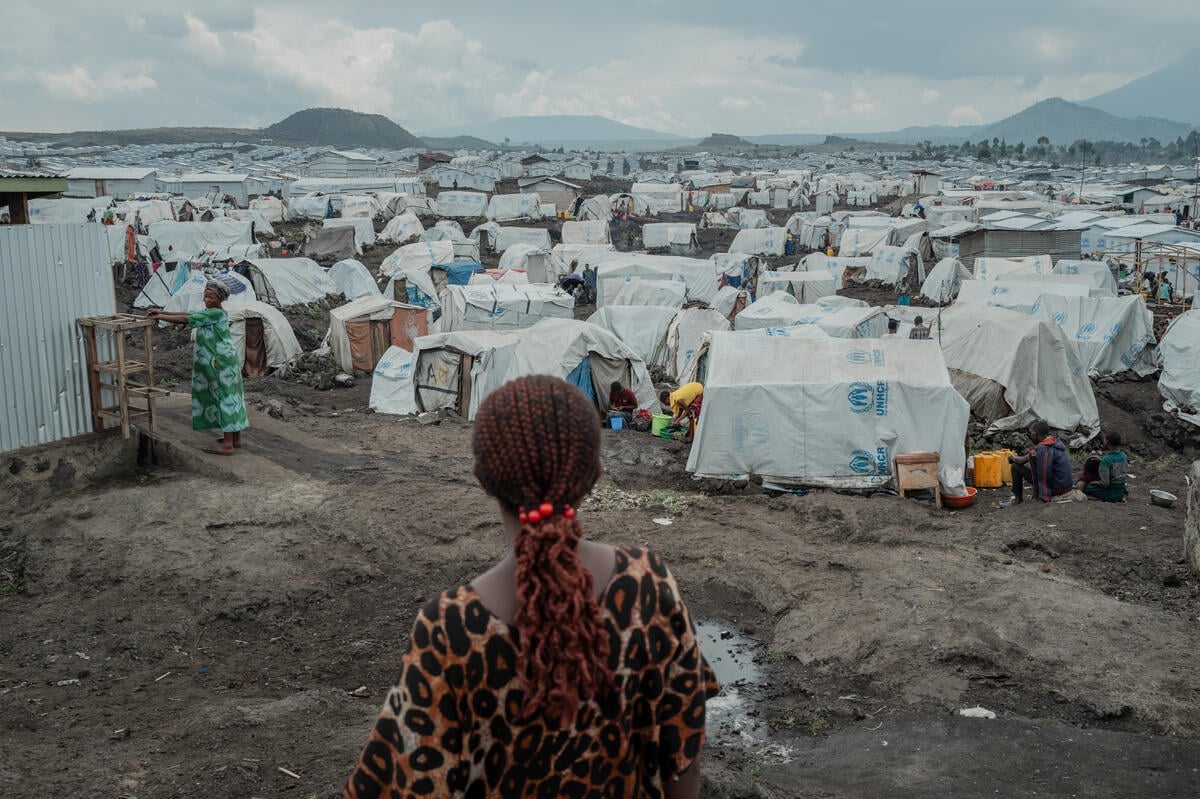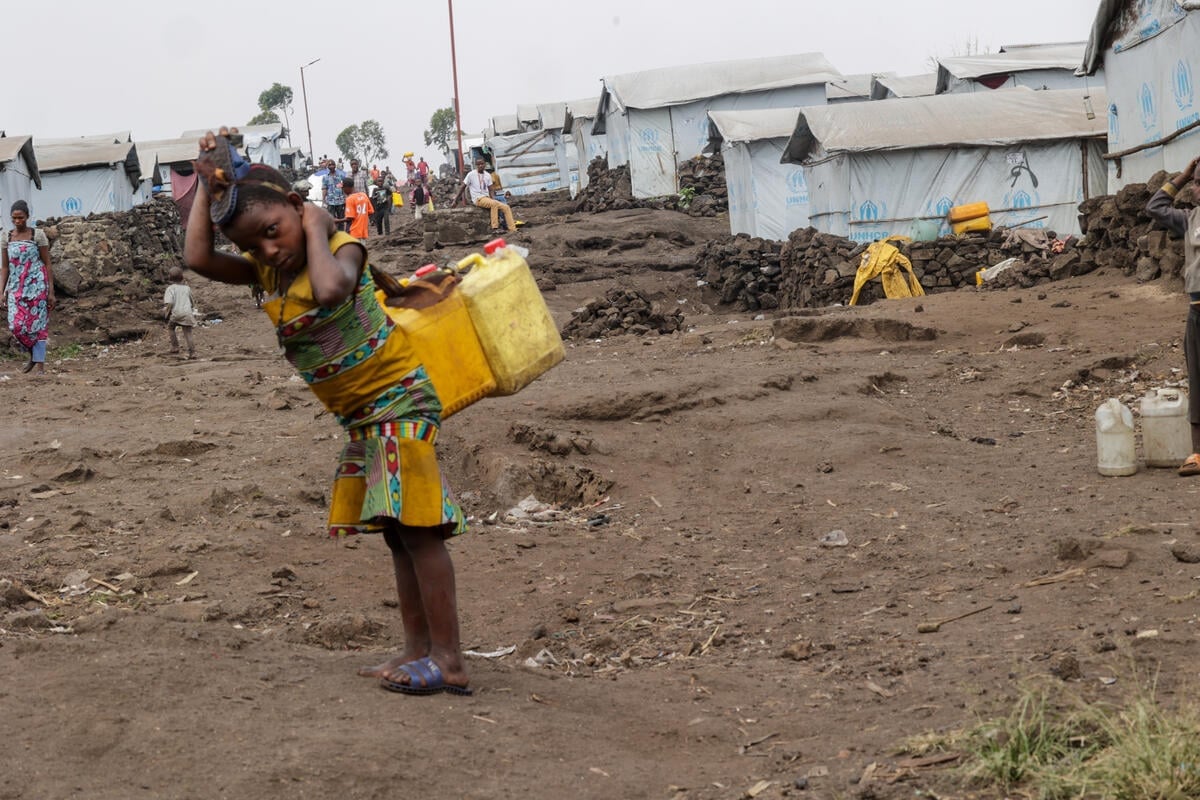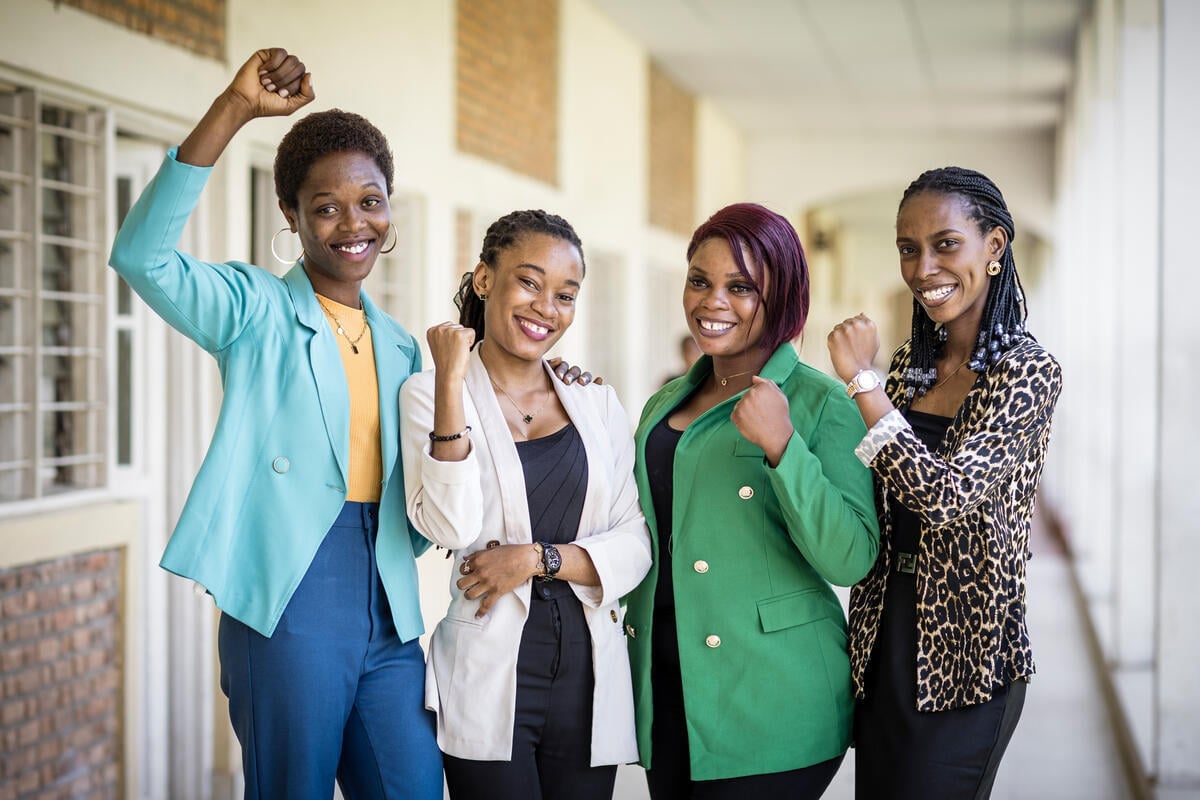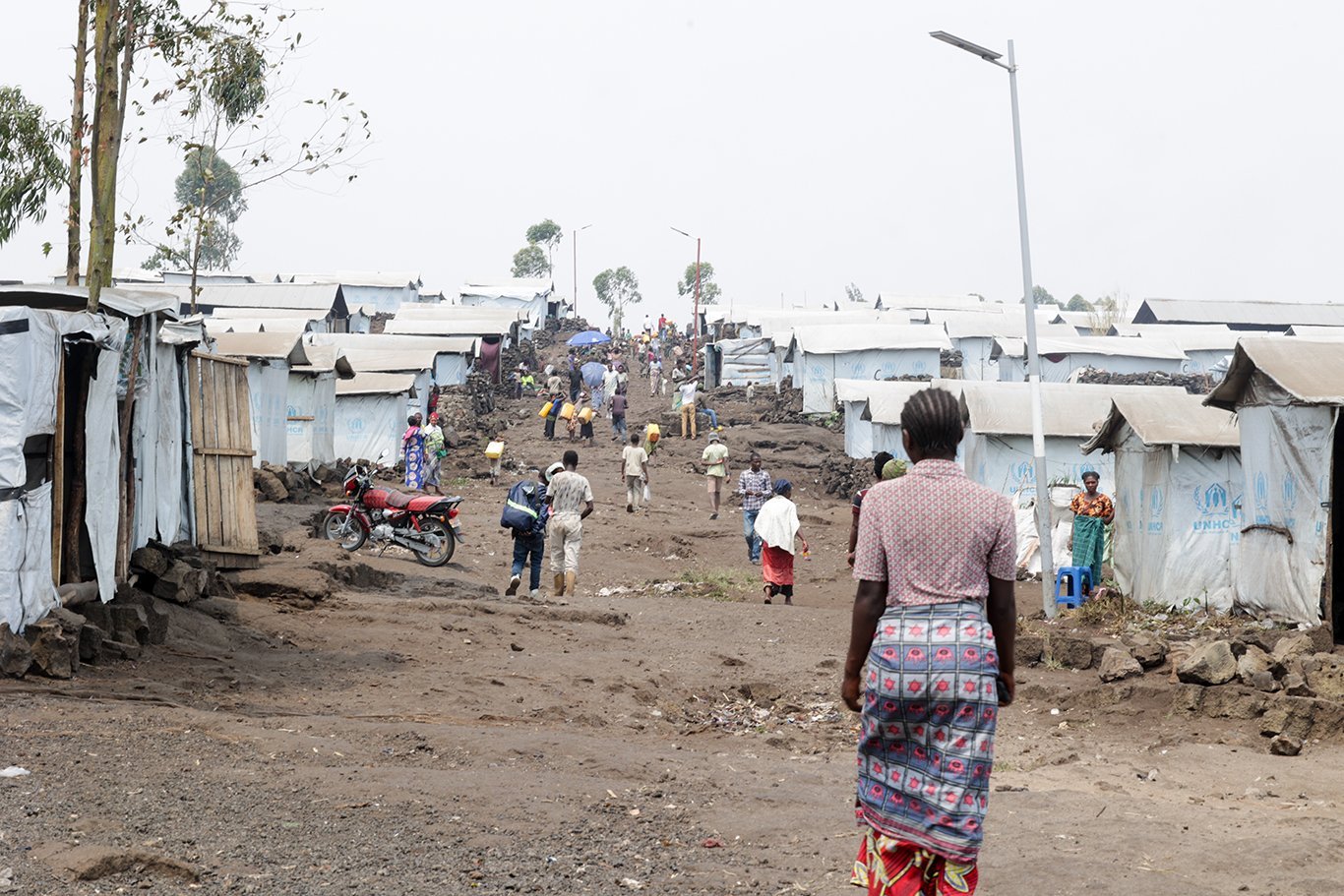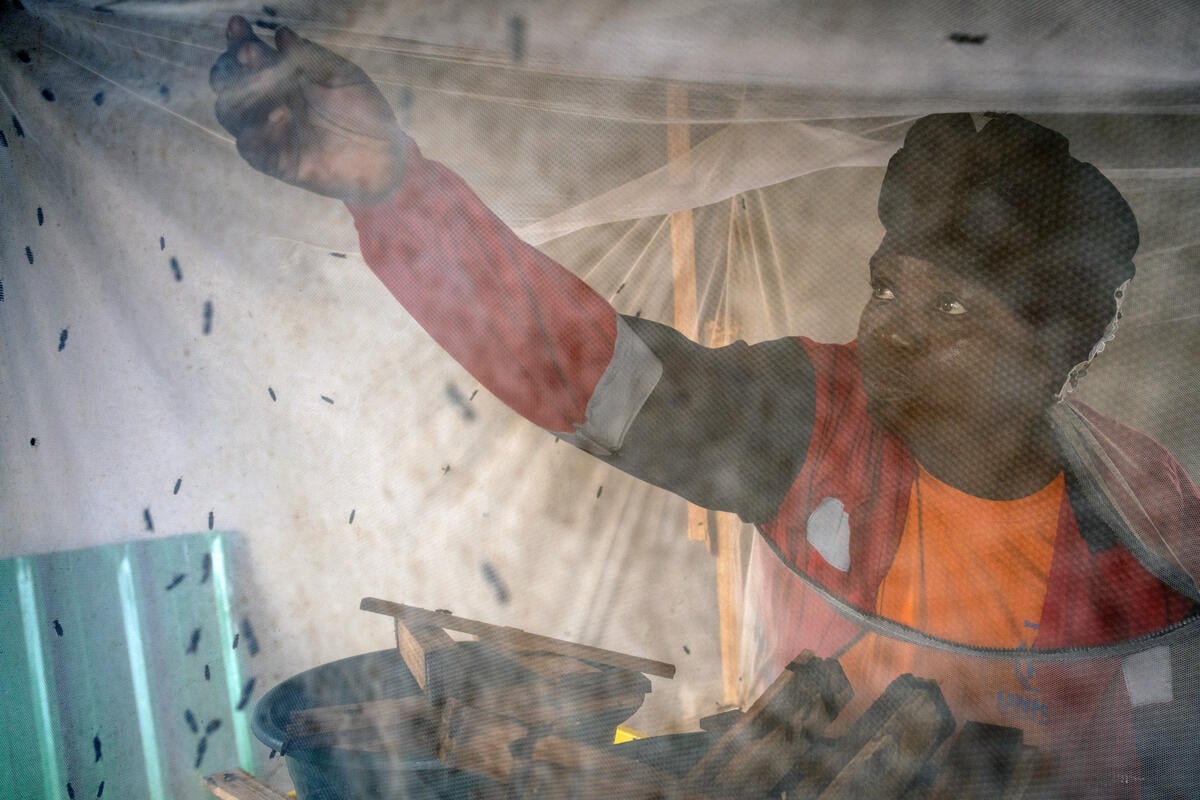Congolese refugees fly home from Chad
Congolese refugees fly home from Chad

KINSHASA, Democratic Republic of the Congo, August 27 (UNHCR) - Driven by poor conditions in their host country, 85 Congolese refugees in Chad flew home under auspices of the UN refugee agency on Monday.
The 85 refugees, mostly from the Democratic Republic of the Congo (DRC), were repatriated on a Cameroon Airlines flight that left the Chadian capital of N'Djamena for the DRC capital of Kinshasa on Monday. The plane stopped over in Gbadolite, the provincial capital of Equateur province in northern DRC, where 58 of them disembarked.
"We are very happy to be home," said one of the returnees, visibly moved upon setting foot in his homeland. Many explained that their decision to return was prompted by the hardships of life in exile. "At last, we have a chance to restart a life in dignity, and begin planting some seeds for our subsistence," said another returnee.
Welcoming the returnees at Gbadolite were Alphonse Malanda, UNHCR Deputy Regional Representative, and Pascal Lipemba, the Secretary-General of the Mouvement pour la Libération du Congo (MLC), which controls the Equateur province.
"This return is the first link in a chain that will see our co-operation reinforcing," said UNHCR's Malanda, alluding to some 80,000 DR Congolese refugees living in sites along the Ubangui river who are contemplating going home.
The Sun City power-sharing agreement in April, which proposed to make MLC leader Jean-Pierre Bemba Prime Minister, raised hopes among refugees from the Equateur region that they could soon return home. Indeed, the province has enjoyed relative calm recently.
MLC's Lipemba added, "This first voluntary return of our compatriots is living proof of the love that exiled Congolese refugees bear for their homeland."
After the stopover in Gbadolite, the remaining 27 Congolese refugees arrived in Kinshasa, where most of them will remain, while others head home for Kisangani and the Kivu. Among the group were five refugees from the neighbouring Republic of Congo, who said they had fled the war in Brazzaville in 1999.
Monday's returnees were part of an original 30,000 DR Congolese refugees, mostly from the Equateur province, who had fled to the Central African Republic (CAR) in different waves during the 1996/7 and the 1999 wars in their homeland. More recently, a May 2001 coup attempt in the CAR's capital of Bangui drove hundreds of them into neighbouring Chad in search of safety. Besides security reasons, the under-funded assistance programme in the CAR had also prompted thousands of refugees to look for assistance elsewhere, especially in Muslim-dominated countries in North or West Africa.
In Chad itself, the assistance programme was so limited that it was terminated for urban refugees. UNHCR's office there closed at the end of 2001. This led to refugees briefly occupying the Ndjamena cathedral in May 2002, requesting resettlement in North African countries such as Libya, Tunisia or Morocco.
With none of these countries ready to accept these refugees, who did not meet the criteria for resettlement, the only solution was voluntary repatriation. Many other refugees attempted the journey on their own and are now believed to live in different countries in West and North Africa.
It is estimated that the CAR still hosts 10,400 refugees from the DRC today, the majority being urban refugees in Bangui, and with about 3,000 at the Molangue camp. There are also another 200 DR Congolese refugees known to UNHCR in Chad after the recent repatriation.
Although the situation in the DRC is still unstable, small groups of DR Congolese refugees scattered in the region have begun to show signs of wanting to return, including about 100 of them currently in the CAR's Bangui.


